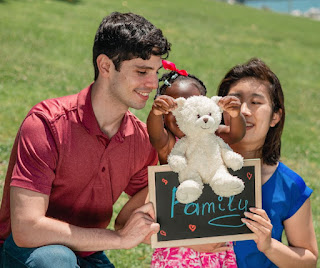Childcare is an enriching experience that can be transformative in a young person's life, but it can be daunting. In this guide, we'll go over our top tips for becoming an adoptive parent for the first time, including how to choose an agency, questions to ask, and how to outfit your home.
Choose the right agency
Before even considering becoming an adoptive parent, you must choose the right agency that can accompany you at every stage of your journey. Custody is a big decision, so it's not something you should rush into. A good agency offers ongoing support – this can include a dedicated social worker, 1-2-1 help, and a 24/7 helpline for those times when you feel overwhelmed. If you are considering seeking treatment in Essex, a great option is Orange Grove Foster Care, which can give you the best advice at every stage of your journey.
Ask the right questions
It's an exciting time when you meet a child who could become the newest member of your family. However, this is the most crucial time for you to ask the right questions and make sure your home is perfect for the child in question. Some of the basic things to learn include:
What is the child's story?
Understanding why a child is in the foster care system is essential if you want to support them in the best way possible, as it can influence the type of ongoing support they need to thrive.
Did they have previous placements?
Unfortunately, many children in foster care go through several places before finding the perfect home to settle into. Knowing more about the baby's past positions will give you a better understanding of anything that might affect your ability to care for him properly.
Do they have any medical issues?
Sometimes an adopted child may have an existing or ongoing medical condition that requires ongoing support. It can be mental or physical, so ask about what kind of medical care they might need after moving into your home.
Do they have any triggers or behaviors you should be aware of?
Children placed in the foster care system often experience disruptions and unexpected changes in their routines, which can affect how they handle certain situations. While this is something that can be improved over time and certainly shouldn't affect your decision to adopt, understanding their triggers and learned behaviors will help keep them and other family members safe.
Once you know more about how a baby fits into your family, you can take the time to get to know him and check that he feels confident and comfortable with you.
Prepare your home
If all parties involved agree that the baby will be a suitable addition to your family, it's time to prepare to welcome him into your home. Talk with your new foster child to understand their likes and dislikes, and use that to create a comfortable, welcoming space. This will help them settle in as quickly as possible and gain confidence from day one.
Boosting for the first time can be daunting, but with the right support at hand and a proactive approach, you'll find it an enjoyable and rewarding experience. By choosing the best agency, asking the right questions, and setting up the perfect home environment, you'll find yourself welcoming your newest family member with open arms.







Comments
Post a Comment